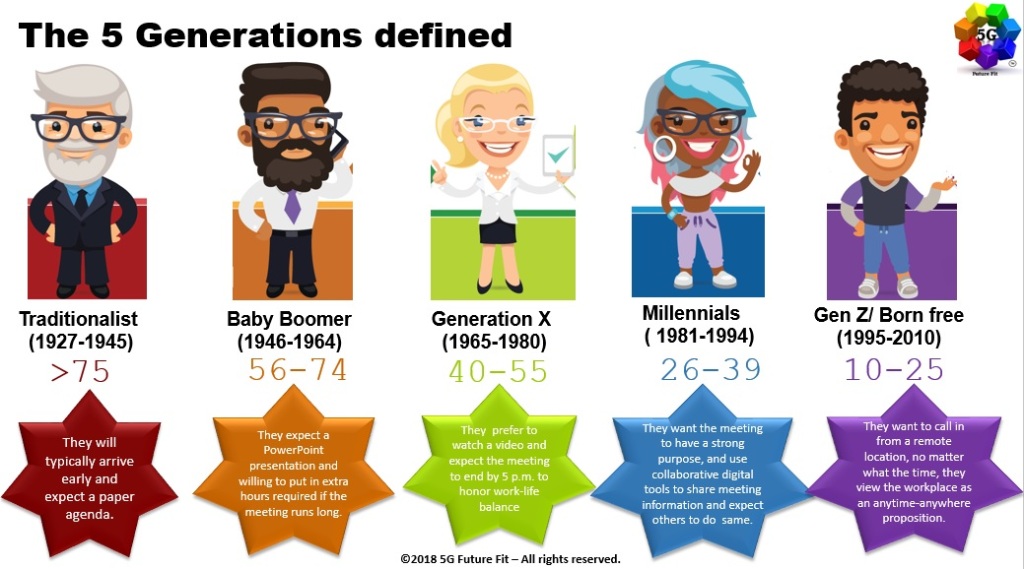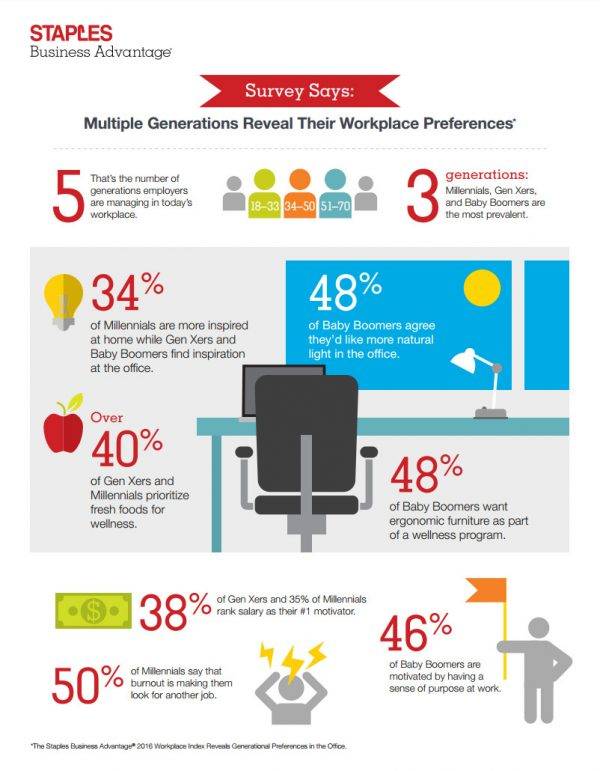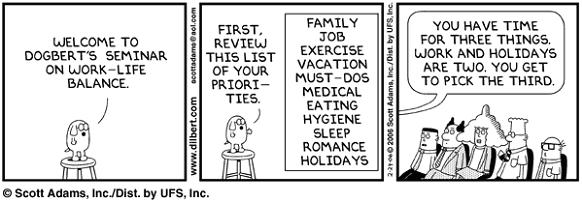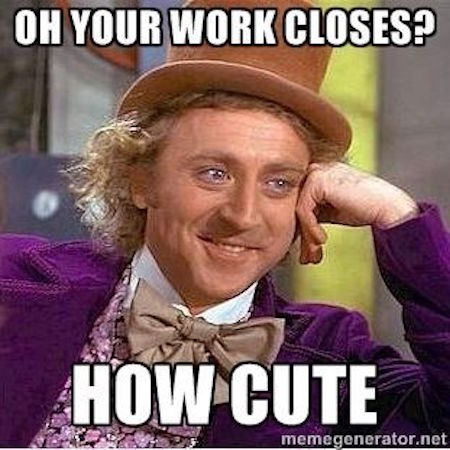Humans are creatures of habit. We habitually move through the motions of life that we have dictated and reinforced through daily routines and widespread societal expectations. But what do we do if we start to reject the notion of habit as a virtue and pursue the extraordinary in order to avoid the mundane?
Mediocrity has been defined as “the quality or state of being mediocre” (of only average quality) but for many of us this term has become synonymous with the concept of discontentedness. There is a great aversion to stagnancy in our personal but more importantly in our professional lives. My mind echoes profoundly the fear of mediocrity in life. This fear is not held in isolation but rather is widespread and indeed is heightened among the “future generations”, specifically millennials and Gen Z. This omnipresent fear that has seemingly possessed the future generations has lead me to question; is the fear of mediocrity, the looming fear of boredom and stagnation, the catalyst driving the future of work?
Is the fear of mediocrity, the looming fear of boredom and stagnation, the catalyst driving the future of work?
Studies now show us that this subject is no longer an ominous conceptualisation but rather a reality creating detrimental effects on the work environment and impacting the future of work. One example of this is the significant influx in turnover rates companies are now experiencing.
What is driving this fear? One explanation for this fear that resides in both Gen Z and Millennials specifically, can be drawn from the findings of Jess Watts (RPA ad agency) who undertook a year-long qualitative study of Gen Z. The study found that perception within this generation is ‘top-of-mind’ stating that “they feel this very public awareness of their success. It’s not a personal professional journey to them – the stakes are much higher and accelerated. You have to be the best, as soon as possible, and you need others to see it and know it.”
“They feel this very public awareness of their success. It’s not a personal professional journey to them – the stakes are much higher and accelerated. You have to be the best, as soon as possible, and you need others to see it and know it.”
Jess Watts (RPA ad agency) Study Findings
Studies now show us that this subject is no longer an ominous conceptualisation but rather a reality reaping detrimental effects on the work environment and future of work. One example of this is the significant increase in turnover rates companies are now experiencing.
In the book ‘Keeping the Millennials’ by Joanne Sujansky and Jan Ferri-Reed, various studies are synthesised and their findings cohesively agree that companies are losing billions of dollars due to turnover within this generation. The book then continues to stress the importance of developing and sustaining a ‘Millennial friendly culture’ as the authors remind us that this generation is moving in great numbers into the existing workforce. An additional driver that creates increased pressure regarding the timely development of this new culture is the large number of baby boomers that are now departing from the work force. The book suggests there are many contributing factors to the high level of turnover we are now experiencing with this generation. However, perhaps the most significant contributor is that millennials ‘move fast and want to be challenged – if they become bored in a job that fails to demand their best for long periods of time, they’re gone’.

So, the question now is how do we create an environment in the work place that will work to make the younger generations want to stay and still accommodate for the transition period between those younger generations entering the work force as the older generation leaves? Before being able to answer this we first must look at some of the other key contributing factors to the younger generations aversion to staying put and thier fear of stagnation.
A major issue presenting itself among the younger generations, particularly Gen Z, as a result of this fear of mediocrity, is burnout. Forbes has recently done a serious of powerful articles regarding Gen Z entering the workforce. The article ‘Gen Z is coming to work and their stress is already high’ references a recent study conducted by the American Psychological Association which found that over 90% of participants that fell within the Gen Z category reported experiencing “at least one symptom of stress, including lack of motivation and depression”. Part of the reasoning that is presented in the article to explain why this is so was the extreme exposure to and ‘issues’ presented by, the media.
Although the media and crises have been relevant factors for other generations, they have traditionally been accompanied by continuous exposure through traditional media. Recent environmental and social justice movements, expose Gen Z as “digital natives” who are said to feel the full extent of these stressors. Regarding work specifically, the article continues to say that the leading cause for increased anxiety among Gen Z is “the perception of an extremely competitive environment, long hours and tight deadlines imposed by employers, substantial time spent in front of a computer screen, and after-hours side hustles allowing for little downtime” (Borysenko, 2018). These identified stressors came from a study that pulled from a pool of over 6,000 participants. Addressing these stressors and reducing their impact is essential. However it is of equal value before addressing this and presenting a recommendation to remedy it, to consider the impact this is having on other generations.
Although this has become an increasingly poignant issue regarding Gen Z, it is paramount to remember that burnout has an effect on all generations in the workplace. However, it presents itself in different ways and there are variants in the causation. The image below visualizes the finding of a study conducted by Staples Business Advantage and is indicative of the primary factors that lead to burnout at work among each generation.

Adverse effects of fear of mediocrity fuelling the younger generation as discussed are having an irreversible impact on the future of work. However, as mentioned previously, in addressing this issue and developing ways of minimising the potential risk and negative impacts, it is essential to look at how this is impacting older generations and accommodating for this.
It is key to remember the inevitable Generational difference of the experience of time and history. Younger generations, having grown up in a time of relative stability and opportunity, do not think it likely to become or remain unemployed (Sujansky, J. and Ferri-Reed, J. 2009). This leads us to look at the concept of concession vs. relativity. The idea of ‘concession versus relativity’ essentially means that the things we choose to give up and compromises we make in life are made in direct relation to our experiences and what we believe to be reasonable. A cost/benefit analysis of sorts, if you will. Companies will need to endeavour to show there is room for growth and development within company and the employee role (and if it does not exist, create it). This could include [during the application process] outlining what a career path with the company and industry could look like.
More flexible hours and locations are now, in my opinion, vital to the development of the future work environment. This helps companies to ensure the work environment is interesting, allowing the flexibility for fluidity of working space and ideas. More lateral managing and discussion opportunities should also be integrated into the future work culture, providing time to collaborate and engage. The younger generations now want to feel fulfilled by their work. This requires sufficient engagement not only regarding work but also socially (work culture).

In the course of integrating these concepts into the current work environment it is essential not to forget the older generations as they transition out of the work force.
In a previous article, I discussed – ”one size fits all” post – how “the standards that have been encouraged and set by people with fewer responsibilities have now set difficult and often unrealistic expectations for others.”
A major contributing factor to these is the erosion of a work life balance and the expectation of unreasonable work hours. Often it is seen that these unrealistic work hours are set by the younger generations. This is impacting the older generation as it sets the precedent of unrealistic expectations and leaves them picking up slack when younger colleagues leave their jobs prematurely. This links to the article that was previously mentioned (Staples Business Advantage study) which identified burnout as being a prevalent problem affecting all generations in different ways.
What each generation wants and needs out of work and in turn what are stressors, varies. Due to the high turnover rates employers are now catering towards the younger generations and trying to generate incentives to make them stay. However, this is to the detriment of older generations as employers now place less importance on them, and therefore less focus on them because statistically, they tend to stay in same job (more prominent concept of employer loyalty) and due to difference in (latent) motives have embraced the concept of stagnation and mediocrity in the work place. loyalty is a once coveted quality they are now suffering from as consequence of possessing.
So how do we ensure that we accommodate the worlds working population and fulfil the needs of each generation without inflicting detrimental repercussions on the others. How do we co-exist in the work place?
The answer lies within direct correlation of the concept, concession vs. relativity. What does a reasonable version of this look like for each generation? How much work is too much? What needs must be met?
This will involve starting a more open dialogue and maintaining this discussion throughout an individuals time within a company. This process begins by developing an open, supportive and honest work culture. Incorporating this in a lateral management style as mentioned before and an open, more flexible work environment (both space and hours) is essential. This has the potential to incorporate a list of work that must be accomplished during the week, including specific ways to measure the adequate completion (SMART objectives, KPIs, weekly goals in congruence with business plan etc.) and specific amounts of contact in office hours on a regular basis (held accountable in team meetings).

Flexibility of work hours and location allows companies to address and accommodate individuals that have unique work/life requirements, assisting them to reach a reasonable compromise that accommodates their fundamental and obligatory responsibilities. Introducing this level of flexibility to the work environment allows employees to work from home, their most productive, creative space, or to work more convenient hours. For example, individuals that are sick or have a chronic illness can still work but do not have to overexert and pressure themselves by physically attending the office on a daily 9 to 5 basis. Similarly, people with obligatory commitments (such as parents) have increased flexibility. Implementing weekly goals set for each member of a team will also allow a company to reassess what is feasibly possible and fair for a worker to complete and to more easily monitor success and performance of both the individual and the company.
As we are all well aware, the work force is ever changing and will require continuous assessment, innovation and adaptability to accommodate for the needs of each future generation as they come to pass.
References
Bean, S. (2019). Overwork and burnout affects all the generations in the workplace – Workplace Insight. [online] Workplace Insight. Available at: https://workplaceinsight.net/overwork-and-burn-out-affects-all-the-generations-in-the-workplace/ [Accessed 1 Nov. 2019].
Blumenfeld, R. (2019). Gen Z At Work – 8 Reasons To Be Afraid. Forbes.
Borysenko, K. (2019). Generation Z Is Coming To Work And Their Stress Is Already High. [online] Forbes.com. Available at: https://www.forbes.com/sites/karlynborysenko/2018/11/01/generation-z-is-coming-to-work-and-their-stress-is-already-high/#7dd94349273b [Accessed 31 Oct. 2019].
Candla, V. (2016). Are Millennials Content With Mediocrity?. University Of Florida Odyssey.
HRD Connect. (2019). Working flexibly to reduce employee stress levels. [online] Available at: https://www.hrdconnect.com/2019/04/10/working-flexibly-to-reduce-employee-stress-levels/ [Accessed 1 Nov. 2019].
Lassander, M. (2019). IS GENERATION Z MORE SCARED THAN EARLIER GENERATIONS?. Pacific Standard.
Schroeder, B. (2019). Millennials, Fear Of Taking Risks Will Hold You Back. Six Ways To Uptick Your Risk Quotient.. [online] Forbes.com. Available at: https://www.forbes.com/sites/bernhardschroeder/2019/05/16/millennials-fear-of-taking-risks-will-hold-you-back-six-ways-to-uptick-your-risk-quotient/#2fe973b31f83 [Accessed 28 Oct. 2019].
Sujansky, J. and Ferri-Reed, J. (2009). Keeping The Millennials: Why Companies Are Losing Billions In Turnover To This Generation – and What To Do About It. John Wiley & Sons, Inc.
Therapy In Philadelphia. (2019). Why the Idea of Mediocrity Tortures Millennials. [online] Available at: https://www.therapyinphiladelphia.com/tips/why-the-idea-of-mediocrity-torchers-millenials [Accessed 30 Oct. 2019].



